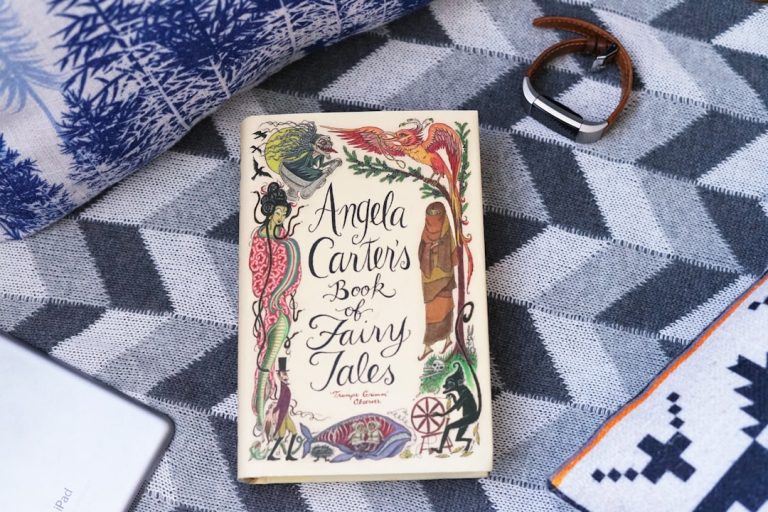
Short stories have long been a staple of literature, captivating readers with their concise narratives and rich character development. For language learners, these compact tales offer a unique opportunity to immerse oneself in the English language. Unlike novels, which can sometimes feel overwhelming due to their length and complexity, short stories provide a manageable format that allows learners to engage with the language without the commitment of a lengthy read.
This brevity is particularly advantageous for those who may struggle with maintaining focus or who have limited time to dedicate to language study. Moreover, short stories often encapsulate universal themes and emotions, making them relatable and engaging for readers from diverse backgrounds. They serve as a microcosm of human experience, allowing learners to explore various cultures, perspectives, and contexts through the lens of fiction.
By delving into these narratives, learners not only enhance their language skills but also gain insights into the intricacies of human relationships and societal norms. This dual benefit makes short stories an invaluable resource for anyone looking to master English.
Key Takeaways
- Short stories are an effective tool for mastering the English language, offering a variety of benefits for language learners.
- When selecting short stories for language improvement, consider the level of difficulty, genre, and cultural relevance to engage and challenge learners.
- Utilize short stories to expand vocabulary by identifying and learning new words, expressions, and idioms within the context of the story.
- Improve grammar and sentence structure by analyzing how authors construct sentences and convey meaning in short stories.
- Enhance reading comprehension by practicing active reading strategies, such as summarizing, making predictions, and analyzing characters and plot development.
- Practice listening and speaking skills by listening to audio versions of short stories and engaging in discussions or retelling the story in your own words.
- Engage in writing exercises and creative expression by writing summaries, reflections, or even creating your own short stories inspired by the ones you’ve read.
- Consistent and effective practice with short stories can be achieved by setting specific goals, creating a routine, and seeking feedback from teachers or peers.
Selecting the Right Short Stories for Language Improvement
Starting Points for Beginners
Beginners can start with classic tales that use simple vocabulary and straightforward sentence structures. Stories like “The Gift of the Magi” by O. Henry or “The Little Prince” by Antoine de Saint-Exupéry are excellent choices. These narratives not only feature accessible language but also convey profound messages that resonate with readers of all ages.
Challenging Stories for Progressing Learners
As learners progress, they can move on to more complex stories that challenge their understanding and push their boundaries. Works by authors like Ray Bradbury or Alice Munro introduce richer vocabulary and intricate themes, providing opportunities for deeper analysis and discussion.
Selecting Stories that Align with Interests
It is beneficial to select stories that align with personal interests or cultural backgrounds, as this can enhance motivation and engagement. For instance, a learner interested in science fiction might find Philip K. Dick’s short stories particularly stimulating, while someone drawn to historical narratives may prefer the works of Jhumpa Lahiri.
Utilizing Short Stories for Vocabulary Expansion

Short stories are a treasure trove for vocabulary expansion, offering learners exposure to new words and phrases in context. When reading a story, learners encounter vocabulary that is often more varied and nuanced than what they might find in textbooks or language exercises. This contextual learning is essential; it allows learners to grasp not only the meanings of words but also their connotations and appropriate usage within different contexts.
For example, encountering the word “melancholy” in a story about loss provides a deeper understanding than simply memorizing its definition. To maximize vocabulary acquisition, learners can employ various strategies while engaging with short stories. One effective method is to keep a vocabulary journal where new words are recorded along with their definitions and example sentences.
This practice reinforces memory retention and encourages active engagement with the text.
By actively using new words in conversation or writing, learners can transition from passive recognition to active application.
Improving Grammar and Sentence Structure through Short Stories
| Metrics | Results |
|---|---|
| Number of short stories used | 10 |
| Percentage improvement in grammar | 25% |
| Percentage improvement in sentence structure | 30% |
| Number of students showing improvement | 20 out of 25 |
Short stories serve as an excellent resource for improving grammar and sentence structure due to their diverse range of writing styles and techniques. As learners read various authors, they are exposed to different grammatical constructions and stylistic choices that can enhance their own writing skills. For instance, a story that employs complex sentences can illustrate how clauses work together to convey intricate ideas, while simpler narratives can highlight the effectiveness of straightforward sentence structures.
To leverage short stories for grammar improvement, learners can analyze specific passages that exemplify particular grammatical rules or structures they wish to master. For example, if a learner struggles with verb tenses, they might focus on a story that prominently features past tense narration. By dissecting sentences and identifying the grammatical components at play, learners can gain clarity on how to apply these rules in their own writing.
Furthermore, rewriting sections of a story using different grammatical structures can be an effective exercise in creativity and comprehension.
Enhancing Reading Comprehension with Short Stories
Reading comprehension is a critical skill for language mastery, and short stories provide an ideal platform for developing this ability. The brevity of these narratives allows learners to focus on understanding the main ideas without becoming overwhelmed by excessive detail. Engaging with short stories encourages active reading strategies such as predicting outcomes, summarizing plots, and inferring meanings from context clues.
These strategies are essential for building comprehension skills that can be applied across various texts. To further enhance comprehension, learners can engage in discussions about the story’s themes, characters, and plot developments. Group discussions or book clubs centered around short stories can foster a collaborative learning environment where participants share insights and interpretations.
Additionally, comprehension questions can be created based on the story’s content to test understanding and encourage critical thinking. For instance, asking questions about character motivations or thematic elements prompts learners to delve deeper into the text and articulate their thoughts clearly.
Practicing Listening and Speaking Skills with Short Stories

Incorporating short stories into listening and speaking practice can significantly enhance overall language proficiency. Audiobooks or recorded readings of short stories provide learners with exposure to authentic pronunciation, intonation, and rhythm of spoken English. Listening to these recordings allows learners to develop their auditory skills while simultaneously reinforcing vocabulary and comprehension gained from reading the text.
To practice speaking skills, learners can engage in activities such as retelling the story in their own words or discussing its themes with peers. Role-playing exercises based on characters from the story can also be an effective way to practice conversational skills in a fun and engaging manner. For example, after reading a story about friendship, learners might role-play scenarios that reflect the dynamics between characters, allowing them to experiment with dialogue and expression in a supportive environment.
Writing Exercises and Creative Expression with Short Stories
Short stories not only serve as reading material but also inspire creative writing exercises that encourage self-expression and language application. After reading a short story, learners can be prompted to write their own narratives inspired by themes or characters from the original text. This exercise fosters creativity while allowing learners to practice narrative structure, character development, and descriptive language.
Additionally, writing prompts based on specific elements of a short story—such as altering the ending or exploring a character’s backstory—can stimulate imaginative thinking while reinforcing language skills. For instance, after reading “The Lottery” by Shirley Jackson, learners might be asked to write an alternative ending that changes the story’s outcome entirely. Such exercises not only enhance writing proficiency but also encourage critical thinking about narrative choices and their implications.
Tips for Consistent and Effective Practice with Short Stories
To fully harness the benefits of short stories for language mastery, consistency in practice is key. Setting aside dedicated time each week for reading short stories can create a routine that fosters steady improvement. Learners should aim to read a variety of genres and styles to expose themselves to different vocabulary sets and narrative techniques.
In addition to regular reading sessions, incorporating discussions or reflections on the stories read can deepen understanding and retention of new concepts. Joining online forums or local book clubs focused on short stories can provide additional motivation and accountability while allowing learners to connect with others who share similar interests in literature and language learning. Furthermore, utilizing technology can enhance the learning experience; apps that offer interactive reading exercises or platforms that provide access to a wide range of short stories can make practice more engaging.
By combining these strategies—consistent reading, active discussion, creative writing exercises, and leveraging technology—learners can create a comprehensive approach to mastering English through the rich world of short stories.
If you’re looking to improve your English skills through short stories, you may also be interested in exploring the collection of books available at ink/books/’>Sersea Ink.
Reading a variety of genres and styles can help expand your vocabulary and comprehension abilities. Additionally, you can check out the selection of short stories at Sersea Ink for more practice in reading and understanding English literature.
FAQs
What are short stories?
Short stories are brief works of fiction that typically focus on a single plot or theme. They are shorter in length compared to novels and often aim to convey a specific message or idea in a concise manner.
How can short stories help improve English skills?
Short stories can help improve English skills by providing exposure to different vocabulary, sentence structures, and writing styles. They also offer opportunities to practice reading, comprehension, and critical thinking in English.
What are some tips for using short stories to improve English skills?
Some tips for using short stories to improve English skills include reading a variety of short stories to expose oneself to different writing styles, discussing the stories with others to practice speaking and listening skills, and writing summaries or analyses of the stories to practice writing skills.
Are there specific types of short stories that are particularly helpful for improving English skills?
While any type of short story can be helpful for improving English skills, stories with clear and engaging plots, relatable characters, and descriptive language can be particularly beneficial for language learners.
How can one incorporate short stories into their English learning routine?
One can incorporate short stories into their English learning routine by setting aside time for regular reading, actively engaging with the stories by taking notes or discussing them with others, and using the stories as prompts for writing exercises or language practice.



